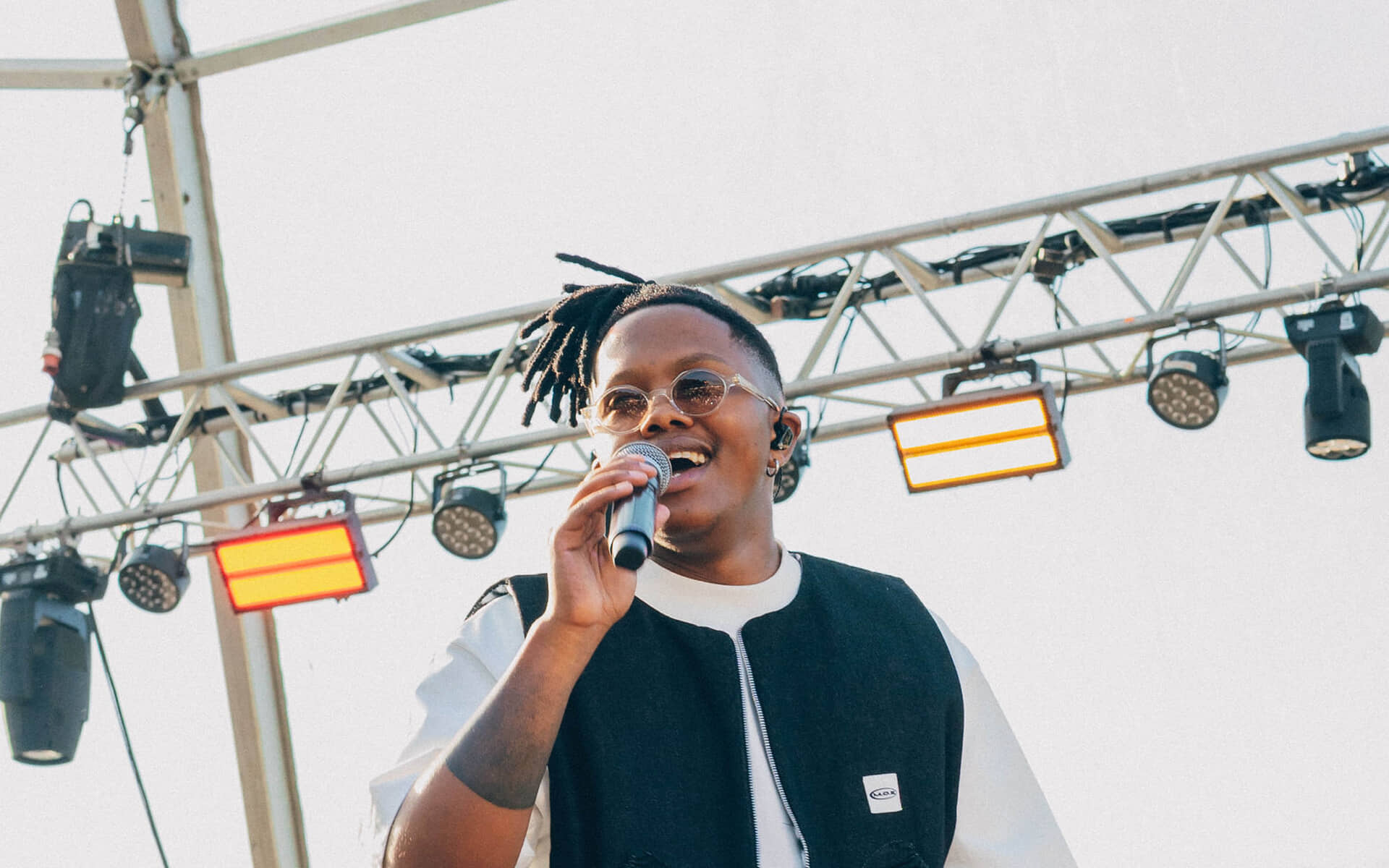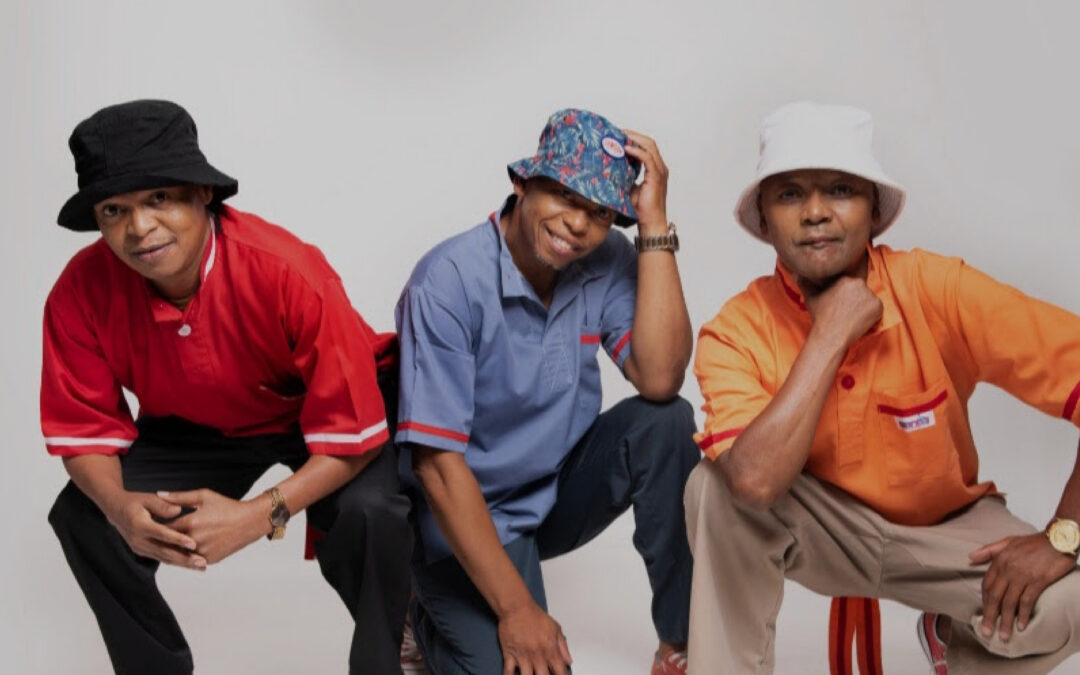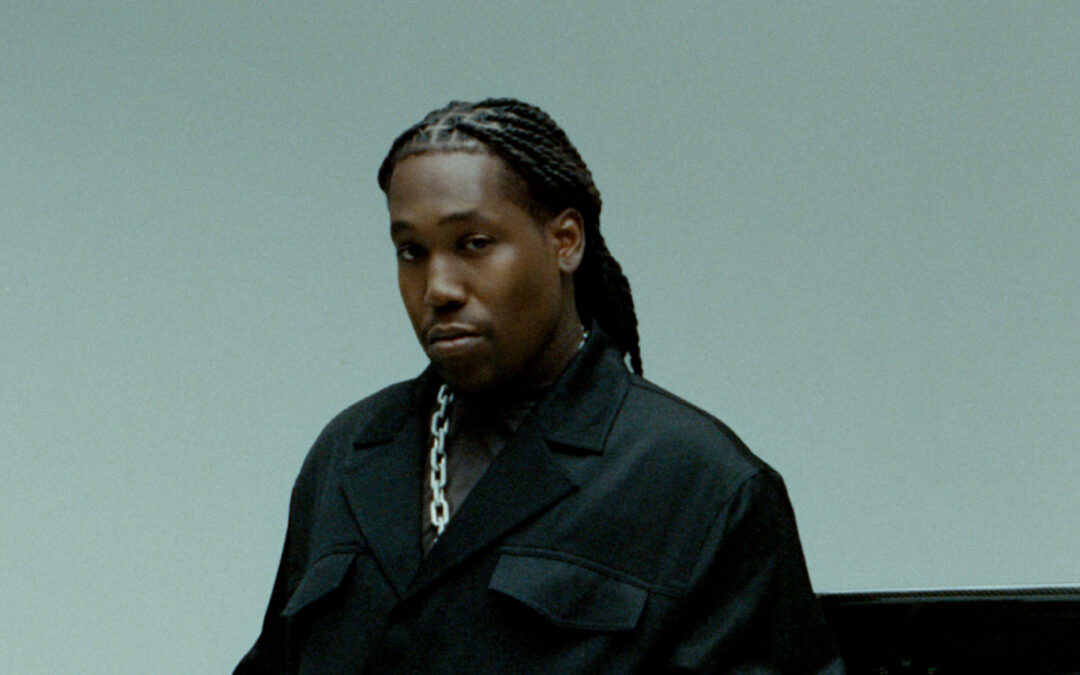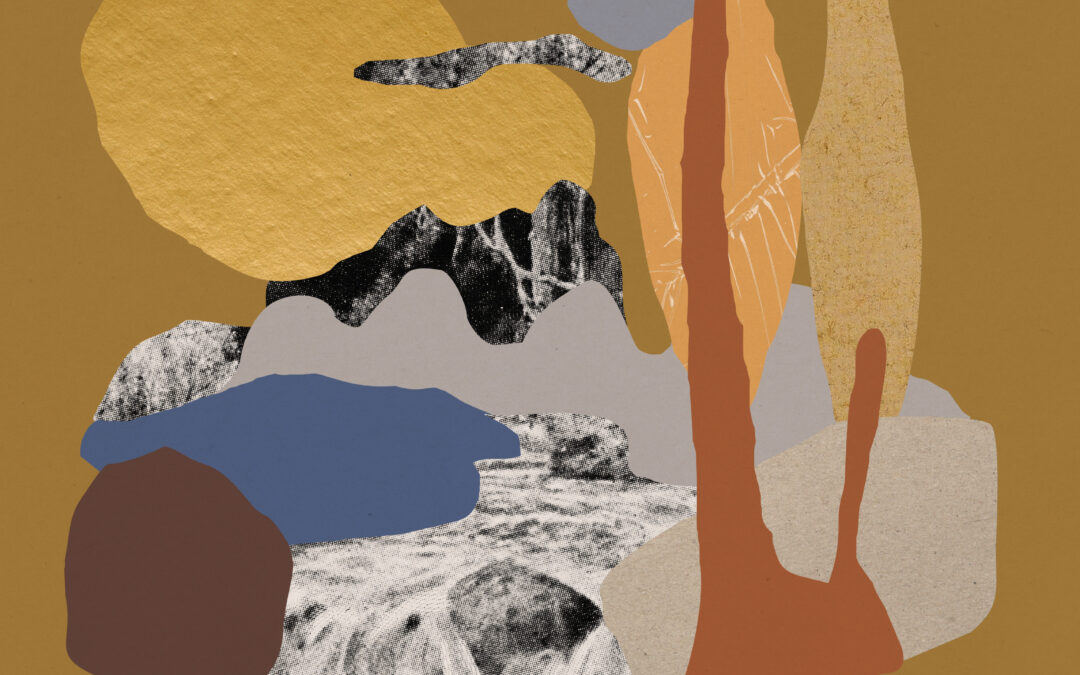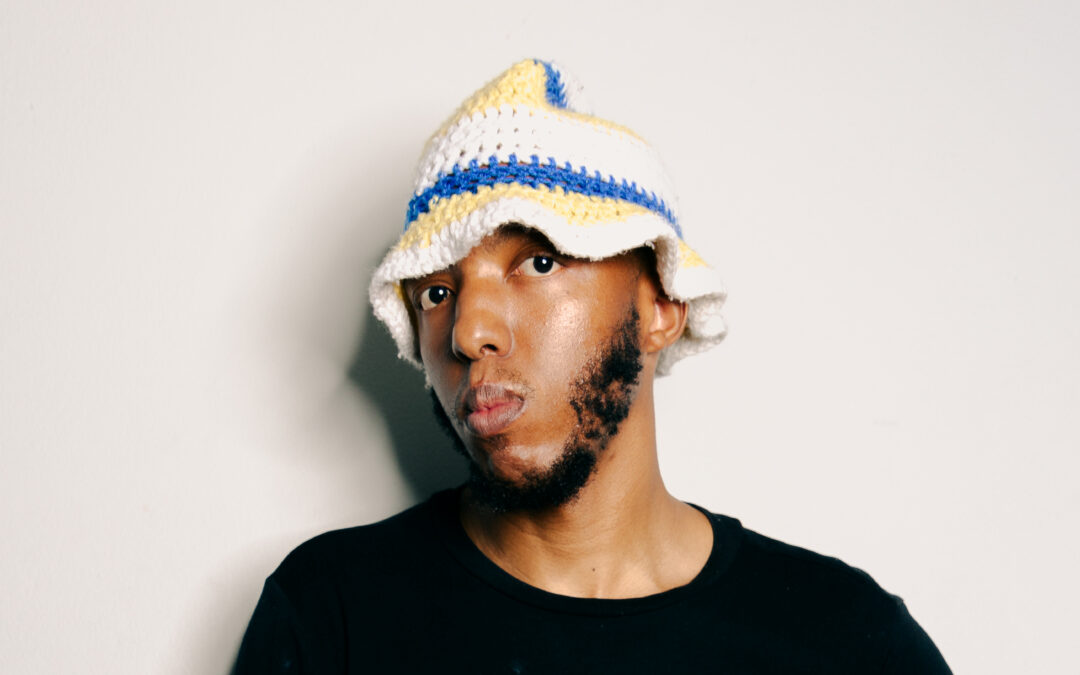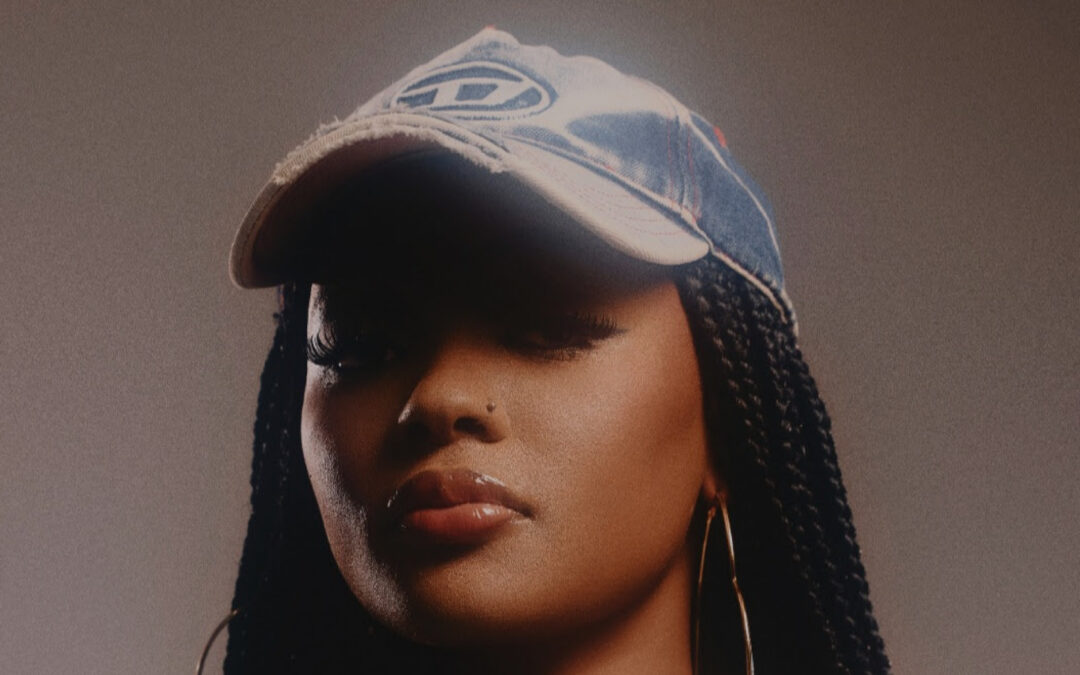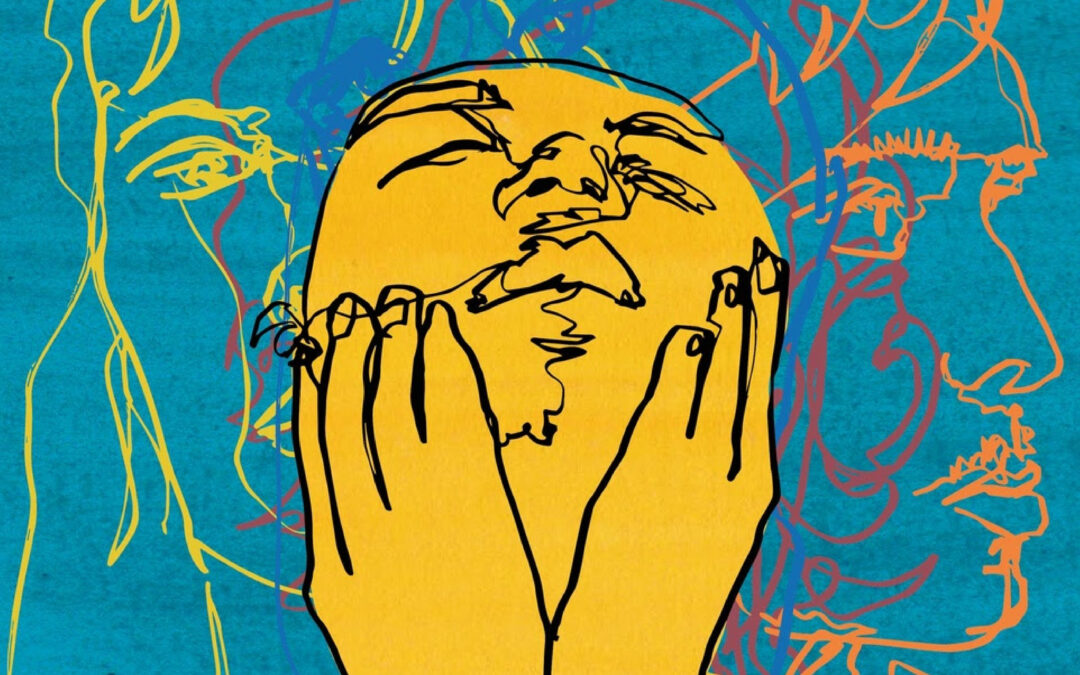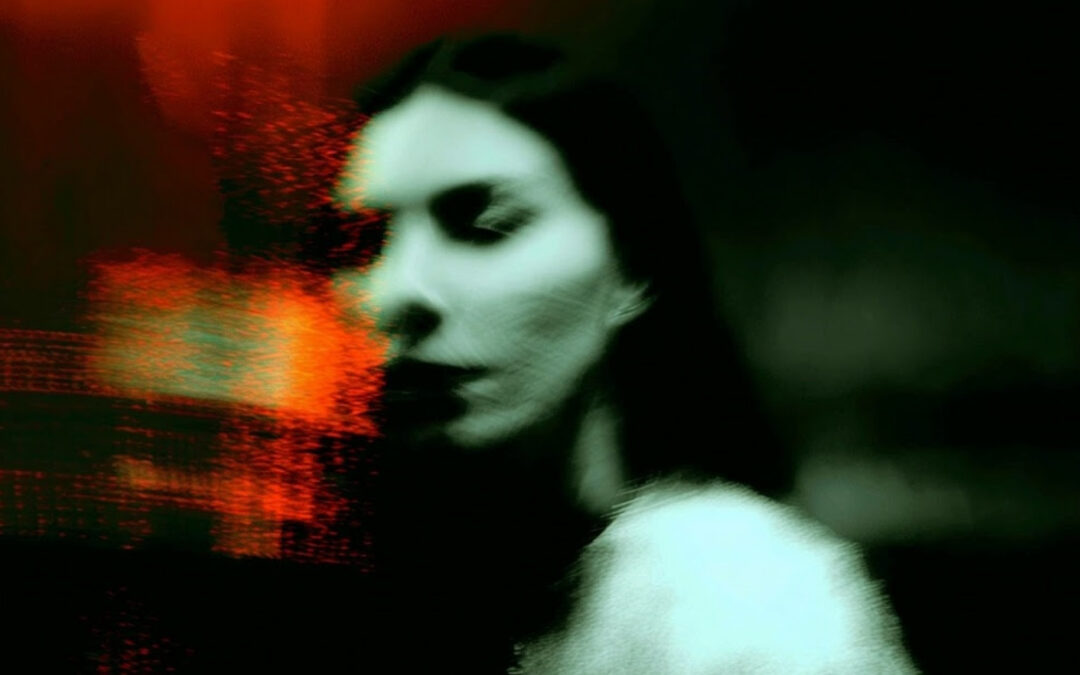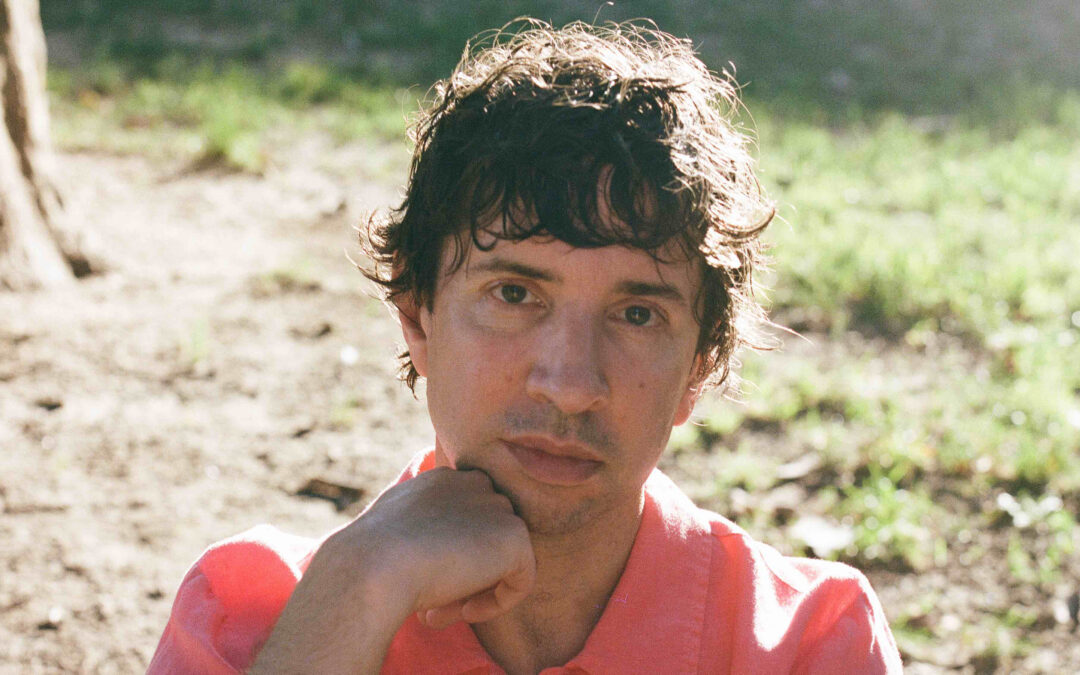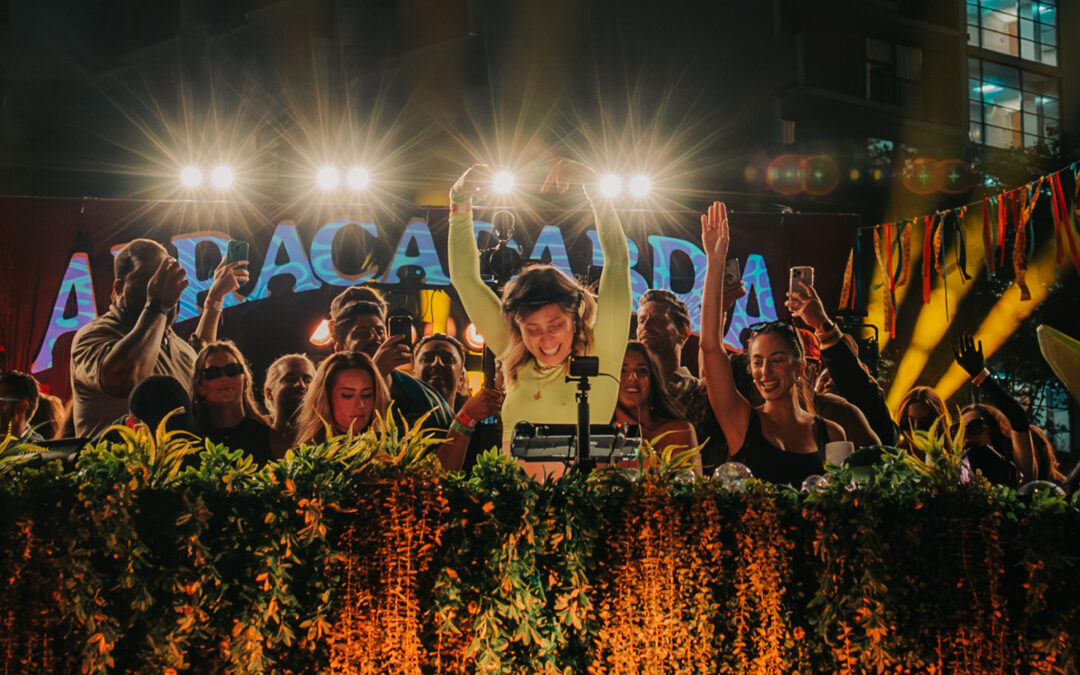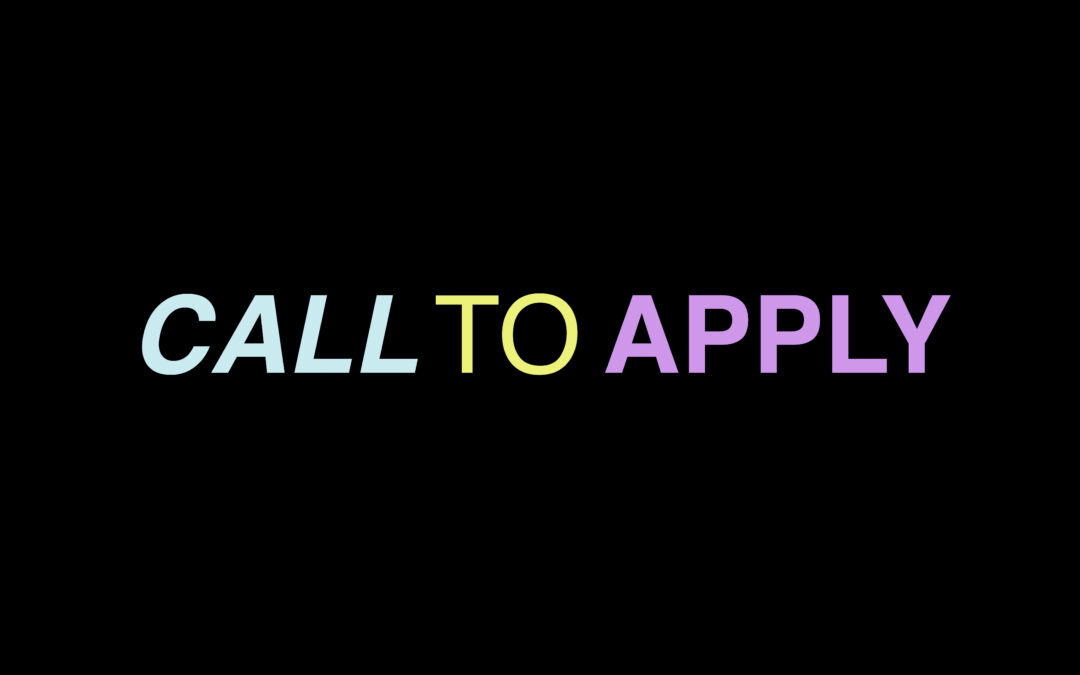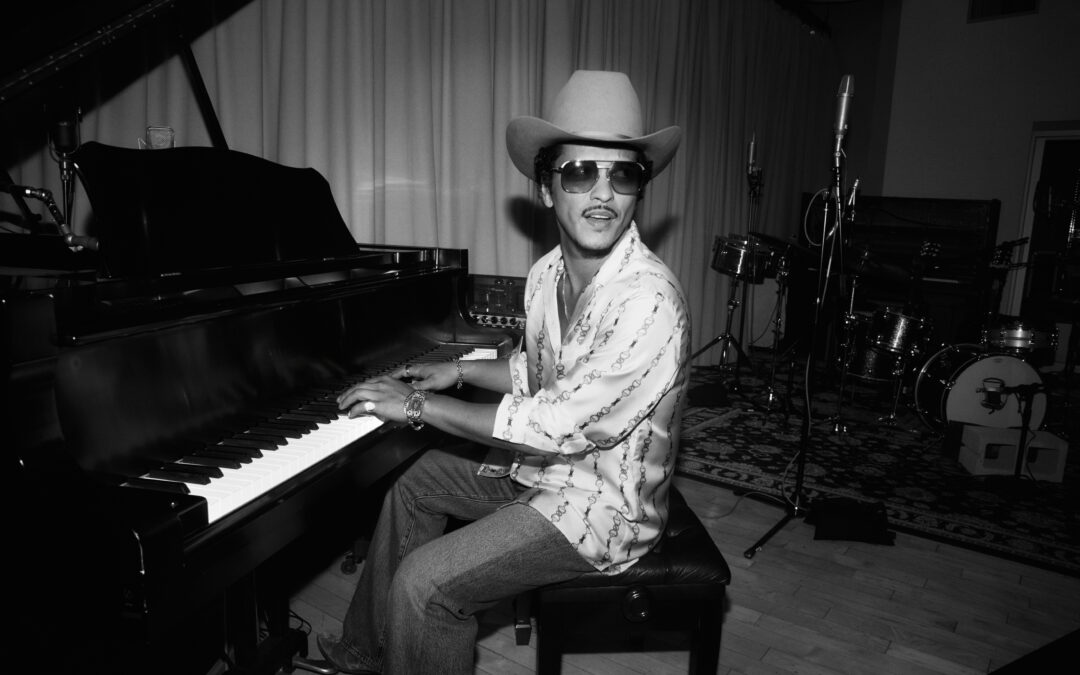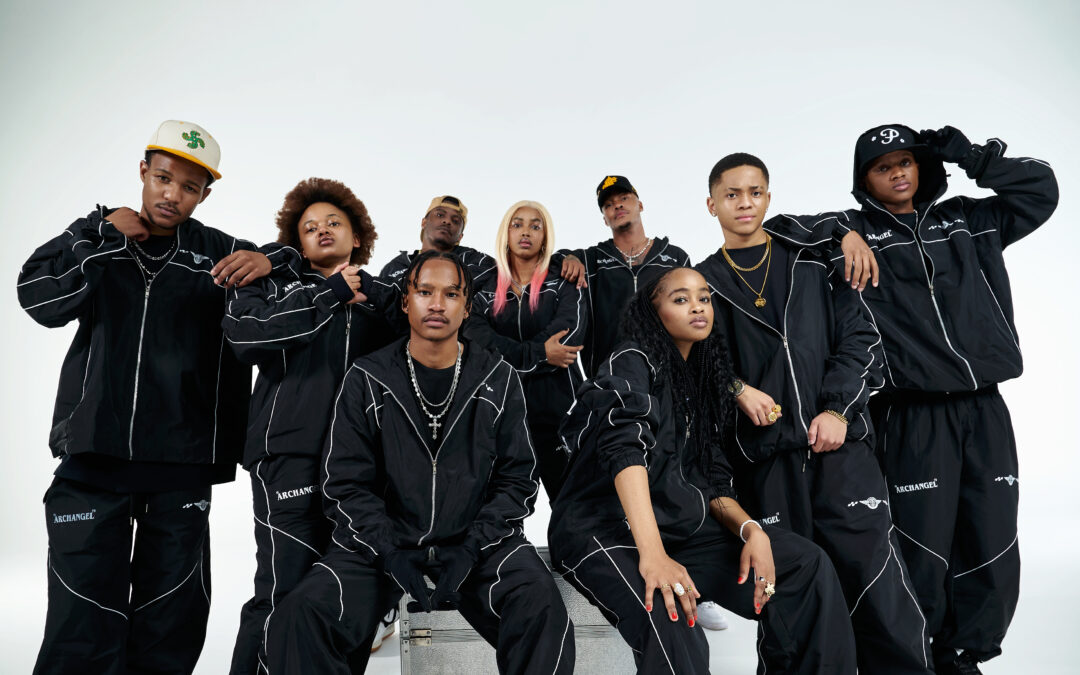A fellow scribe by the name of Langelihle Radebe once wrote, “Lord, when I say, “May Your Will Be Done” in my prayers, I never anticipate that your will would break my heart. I don’t say that in hopes that you will send more devastation my way” – the weight of those sentiments sent shockwaves to my core. An emotional conflict endured in me where I wrestled with the acceptance of pain as part of life’s balancing act.
How do we dress the wound around heartbreak in all its forms and charter the elusive path of healing? For Grammy-award-winning Songwriter, Singer, Producer and creative visionary Ndumisio Manana, affectionately known as Manana, the answer lies in introspection and a shift in perspective. The intertwining of the two is a key anchor embedded into his catalogue, which boasts EPs such as “In the beginning was the end” and “But could the moments in between”, which weave into each other as intimate chapters of a broad musical universe that confronts the nitty-gritty of shadow work. The philosophy behind Manana’s pen as a seasoned songwriter is to translate crippling vulnerability into relief, closure, optimism and resounding faith.
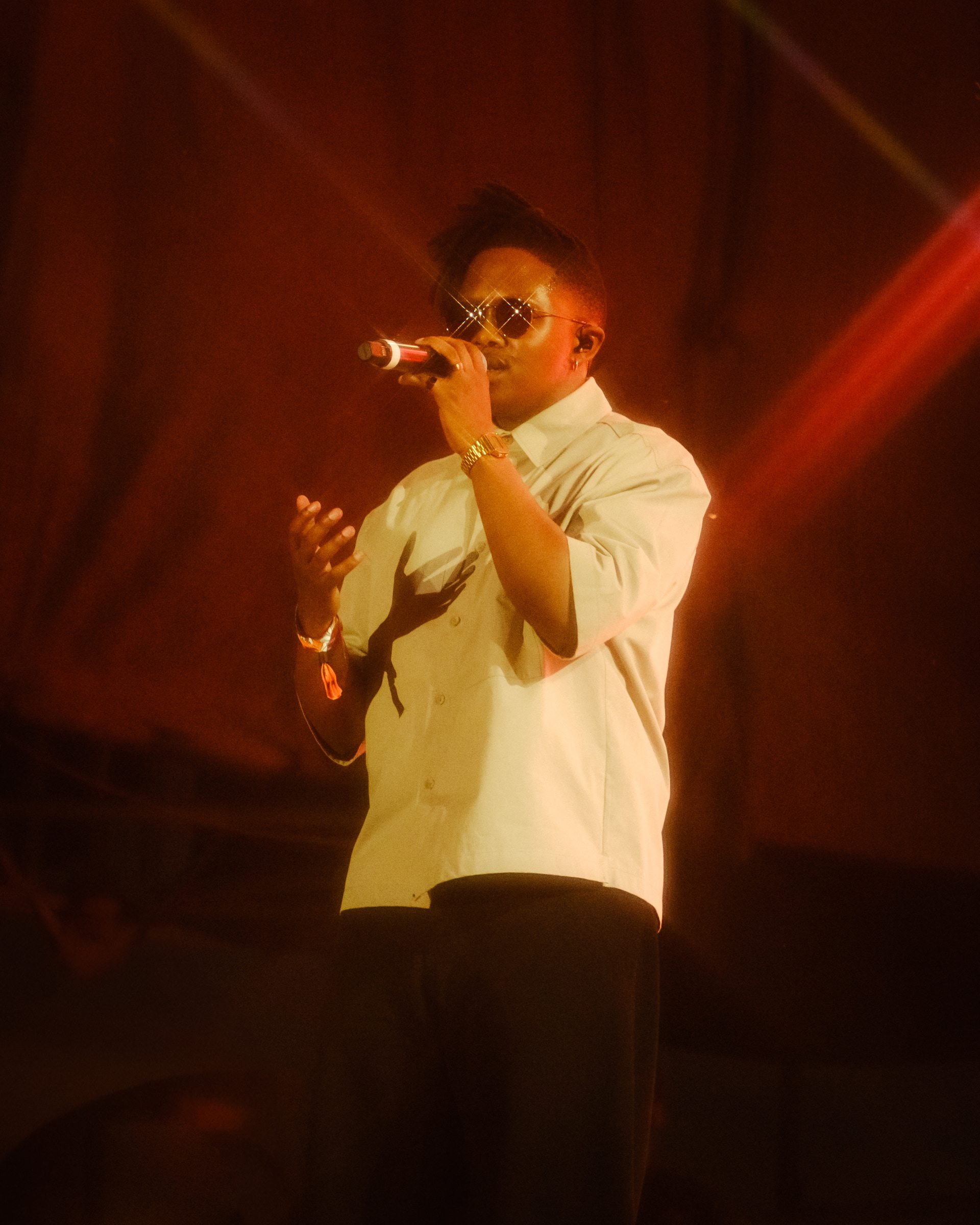
Photography by Arron Moos
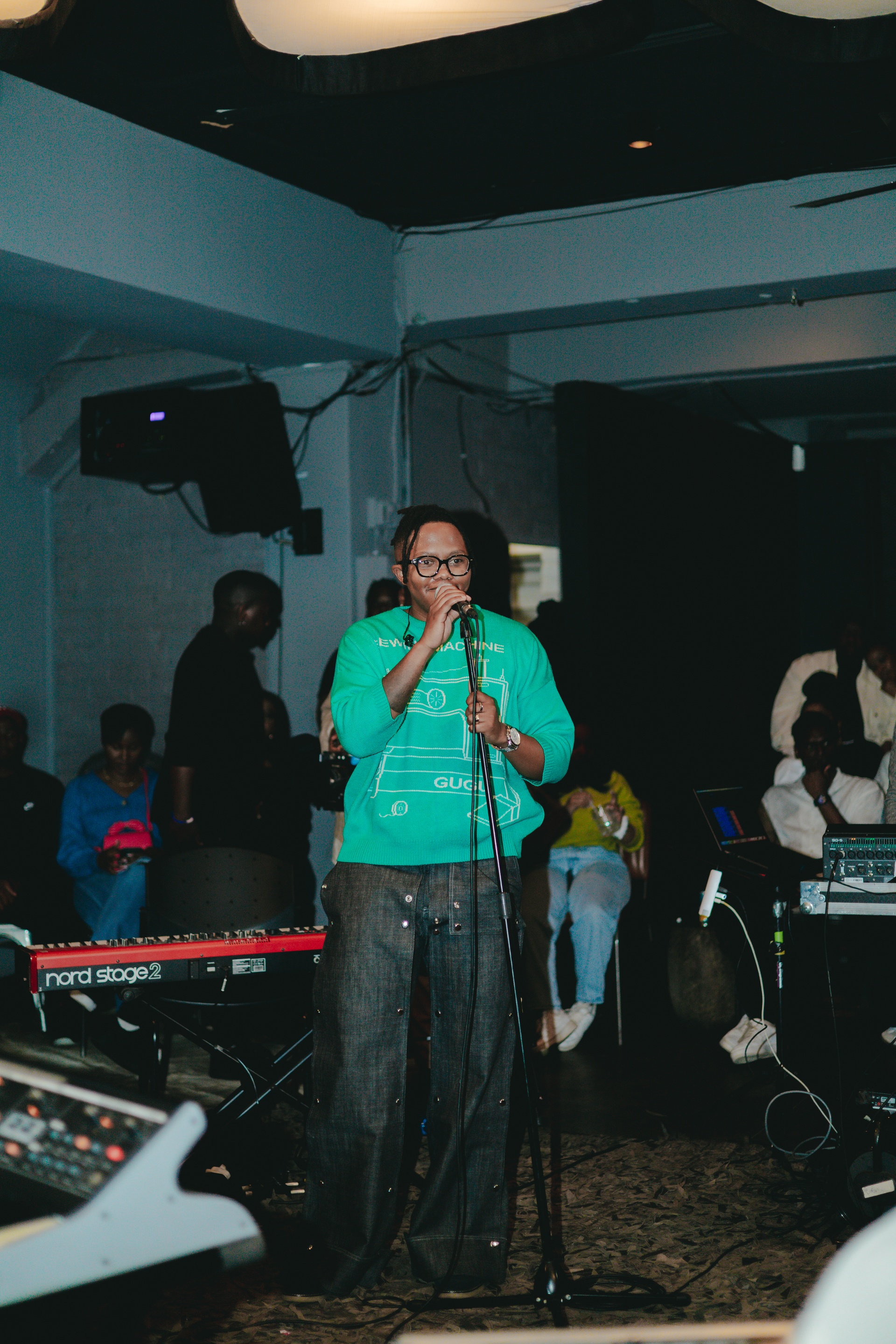
Photography courtesy of Manana
Perhaps we can credit his articulation and conceptual brilliance to his extensive behind-the-scenes experience, having worked with renowned artists like Amanda Black, Ami Faku, Sauti Sol, Burna Boy, Shekhinah, Langa Mavuso, and Rowlene, to name a few. Being in these different creative hubs to birth songs that carry distinct messages has filtered a universal intentionality behind his work that has a laser focus on eliciting a sense of submission to feelings one would rather avoid and sparking a search for a healthy resolution to those feelings, as opposed to being poisoned by them.
At a critical point of my personal path with rediscovery and rebuilding, I was introduced to his impeccable debut album “Our Broken Hearts Mend,” which can only be described as an ode to being present and accountable in choosing yourself and your happiness. Through songs like “Alone (I’m Tired),” “Never After,” “See What I See” and “Isililo soThando” Manana performs an ethereal open heart surgery, crafting not only the daunting but unclenching process of letting go, but the glory of allowing yourself to revel in the beauty of allowing yourself to love again and restoring your sense of worth.
It is the beauty of quotes like “Let’s go dancing in some place we’ll never find again” from “A view with a beach outside (interlude)” that reminded me that beyond the walls of wailing, adventures are waiting to grace my memory in the greener pastures I am nurturing within. In turn, the experience sparked my curiosity to converse with Manana about songwriting, content culture and what lies ahead for his career.
For our readers who may not be familiar with you. Please introduce yourself and share more about your creative path. How was life growing up leading to your journey with music?
Manana: I go by Manana, which is my surname. I was born Ndumiso Manana in Mbabane, the capital of the eSwatini kingdom. My life began there in my early school years before I moved to the Drakensberg, where I attended the Drakensberg Boys Choir School.
I spent six years there, arriving when I was eight or nine years old. At the time, it wasn’t a conscious decision to pursue music, but looking back retrospectively, I would never turn away from music once that happened.
After that, I attended Cape Town at Hoerskool Stellenberg in Durbanville. Following matriculation, I studied jazz music and performance at the University of Cape Town, where I graduated and lived for a few years.
About eight years ago, I moved to Johannesburg and started working as a songwriter in the music industry. Initially, I was signed to a publisher who pushed and propelled my songwriting in terms of professionalism, proficiency, and confidence. From there, I developed enough confidence to start releasing my own music.
What strikes me most about your songwriting is the cultural textures it inhabits. What has your experience in songwriting camps with acclaimed artists and writing from a personal vantage point taught you about genre as a culture and language?
Manana: We often hear that music is a universal language. My biggest takeaway is that melody and harmony are a language on their own. That’s been the most significant realisation from my experience.
I’ve been privileged enough to be in different rooms with artists from various parts of the world, and what I’ve realised is that melody and harmony are central to how songs are formulated, even for rap artists. The intention and precision of the lyric usually starts with melody and harmony, which most people don’t consider when thinking about a song, whether it’s rap or a song in Swahili, for example.
Linguistically, many things about Nguni languages or African languages would naturally influence what a melody sounds like. Most people will write a melody in the language they think, which sounds like abstract thinking, but the influence of topline melody, lyric, and harmonic content is deeply intertwined. The relationship between these aspects is what makes a song what it is.
Watch “Never After [Live from the House Of: The Embassy]” here
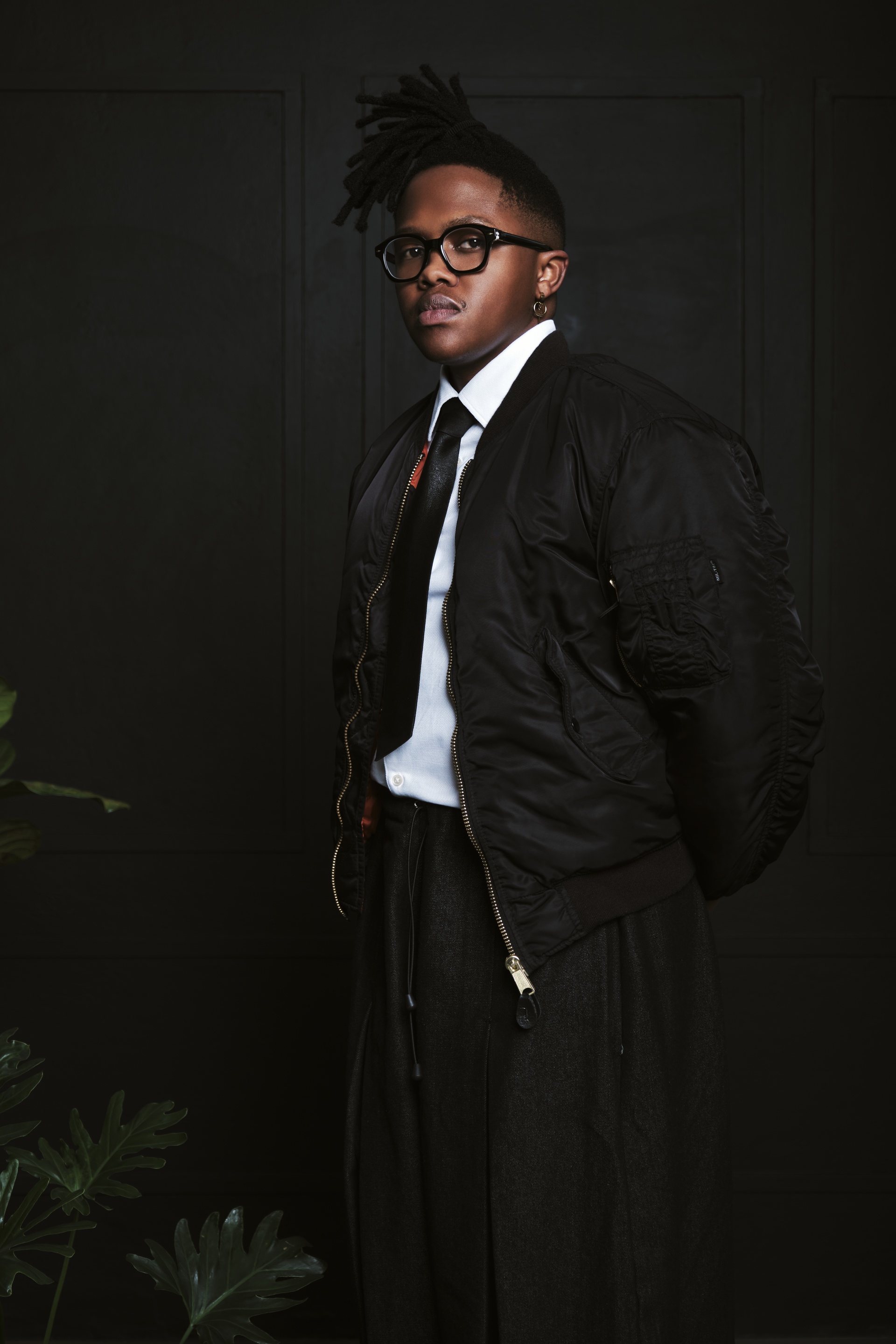
Photography courtesy of Manana
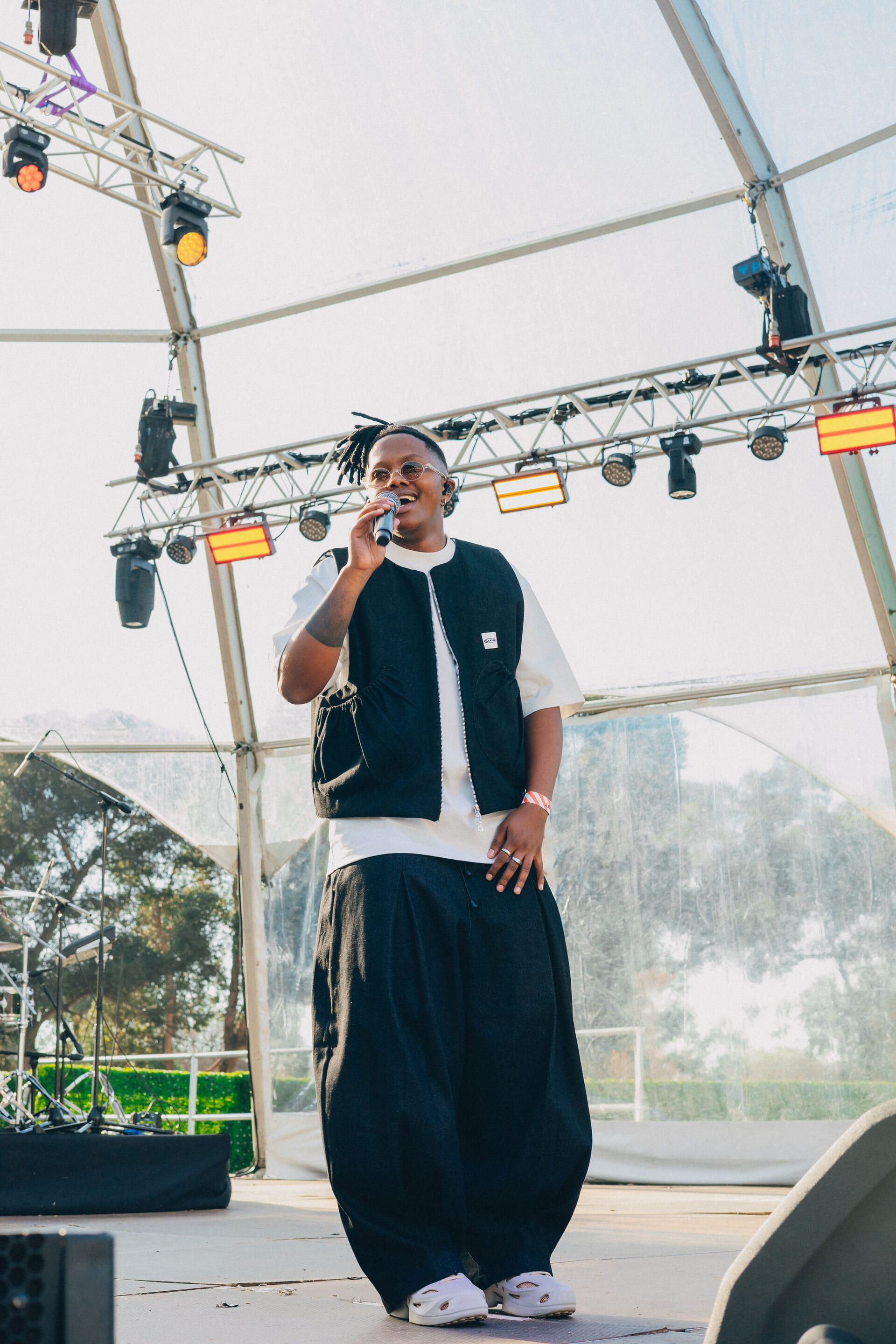
Photography by Maishe Duke Motloutsi
“If We Move” made me ponder the lost art of living in the moment. Do you feel that content culture has engineered us to chase after unforgettable moments instead of surrendering to their spontaneity?
Manana: Yes, absolutely. I talked to someone about this last week because I had a moment to leave and go to Durban a while ago. We got to this part where Durban was evergreen and beautiful, and as we’re driving, the conversation in the car was, “Hey, can we stop and grab a photo?”
Now, I’m fully anti-phone and anti-social media, so take this with a pinch of salt. But my first thought is always: when we see something extraordinary these days, we feel the purpose of the beauty we’re experiencing is to be shared instead of just being experienced. That’s a huge thing I’m trying to avoid, and I’m trying to get more people to avoid it too, especially as creatives.
Beauty for beauty’s sake is something we’re starting to lose because of content culture. Nature will curate something perfectly beautiful, and then you want to take it from that perfectly created moment. Instead of being like, “Wow, this is so beautiful,” and maybe sitting there for an hour appreciating the beauty meant for you in that moment, you’re already repurposing it. You’re already repurposing beauty.
Obviously, there’s a space for sharing, and there’s a reason we want to do that. But we must be aware that sometimes, just like in music, right? Sometimes I’ll write a song and feel like, “Oh, this is so nice, but this is for me.” Beauty for beauty’s sake is consumed by this desire to create a perfect, curated content piece out of what we’re experiencing every moment.
Why did you decide to make a deluxe edition with your debut album being such an enriched encounter? What are some of the stories you want to share through the deluxe?
Manana: So with the Deluxe, there are two things. First, I change my mind a lot of the time. The deluxe is slated to be released soon, but I’m also at a stage where we’re creating new music that’s coming out quite well. The songs are coming together rapidly, so we might release some of the songs we intended for the deluxe as a separate thing entirely.
To your point, the stories and journeys we tried to put in the album are perfect. But there are also some creatives I had the privilege to work with that I would have loved to release music with. That’s the hope with the deluxe, or whatever we release next.
The idea is to capture. I spent some time in Kenya with some artists I admire, so I want to release that music. Some extended versions of songs were too good to lose on the project. For example, “A view with the beach outside” is a song I wrote in full and had to fight tooth and nail to have on the project. The compromise was that we put it as an interlude, but there is a full version that people would appreciate. Same thing with “Time,” there’s a full version we want to get out there.
This aims to express the stories of the creators behind the project, honour them with the work they’ve put in, and then expand further on the stories that already exist in the album.
Thank you for joining us for this interview. Before you go, please share what you have in store soon. What’s next for Manana?
Manana: So like I said, I’ve been in the studio. To be honest with you, I thought I was only going to get back into the studio to start working on the next project in November, that was the plan. But things worked out, so I was itching to return in around February. So between now and December, we’ll release a lot of music.
Our band Seba Kaapstad with Sebastian Schuster, Zoë Modiga, and Philip Scheibel is coming out around the 8th of August. Then we will start the rollout for the next album in February. It will be action-packed, and I’m shooting for the stars as far as some artists I want to work with and feature on this next project.
Next year, we want to put together a one-man theatre show and take that to as many cities on the continent as possible, especially first. That’s what we’re planning for the near future. We’re also trying to get some vinyls together, and I’m trying to express myself through fashion and clothing, so that might also be something we see next year.
I say “might be” just because I don’t know exactly what the near future holds, but these are our hopes and dreams for the coming year.
Stream “Our Broken Hearts Mend” here
Connect with Manana on Instagram here
Listen to Manana’s music here
Written by Cedric Dladla
For more news, visit the Connect Everything Collective homepage www.ceconline.co.za

